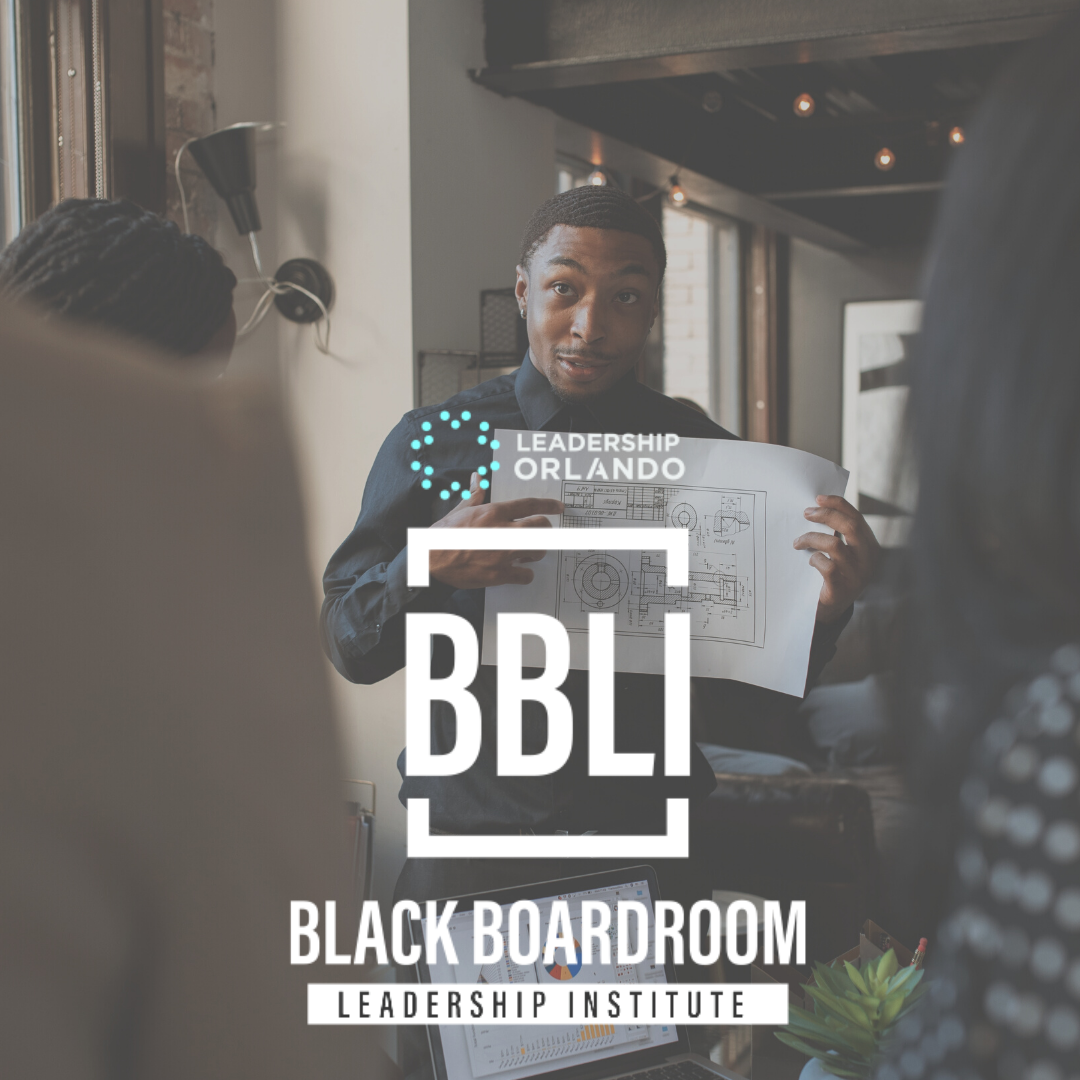
“What Are We Going to Do About It?”: The Beginnings of BBLI
Table of Contents
The beginnings of the Black Boardroom Leadership Institute (BBLI), a now award-winning leadership program in Orlando, Florida, can be traced back to a 2019 Facebook post where Daniel Downer, CEO of Bros in Convo, posted that the leaders of nonprofit organizations (Executive Directors and Board) do not look like the people they serve. As someone who has run a nonprofit and struggled to maintain a diverse board, Sandi Vidal, Central Florida Foundation’s VP of Community Strategies and Initiatives, responded to Daniel by asking “What are we going to do about it?”
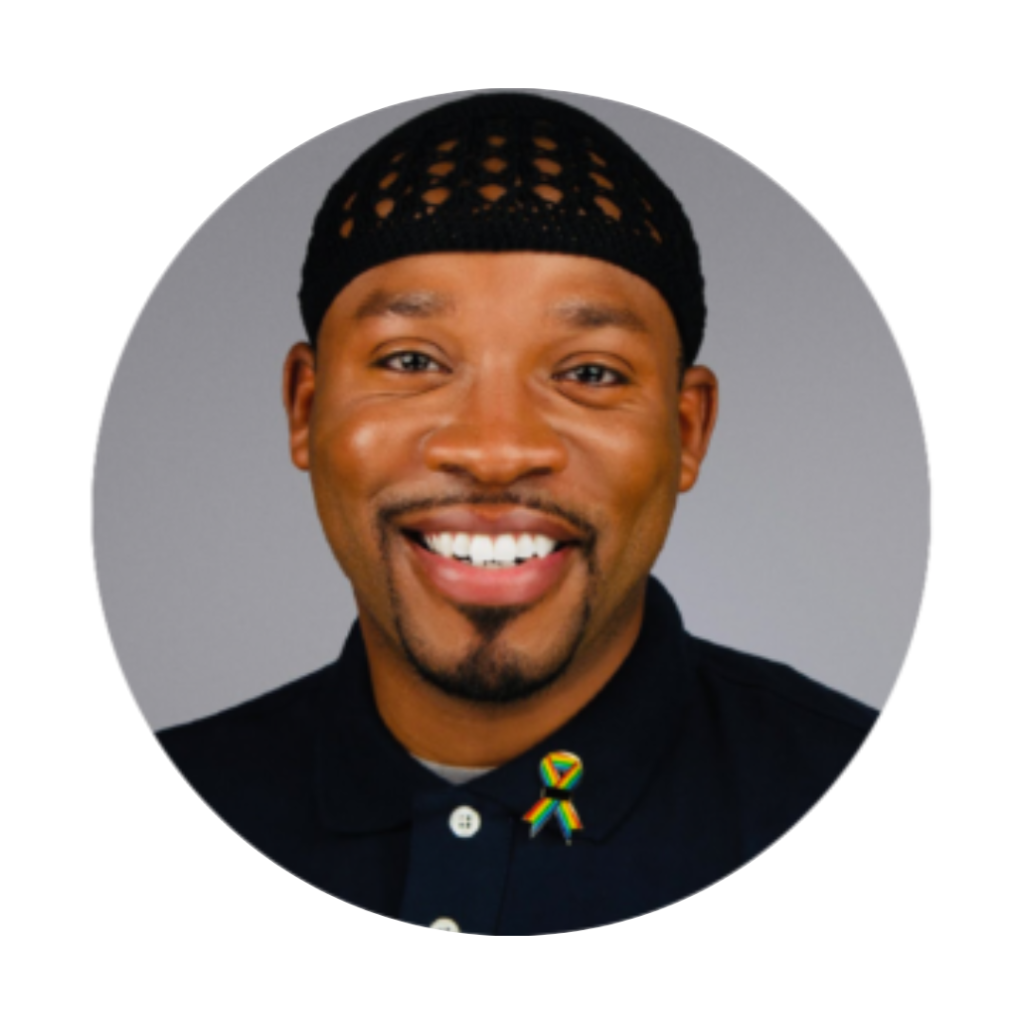
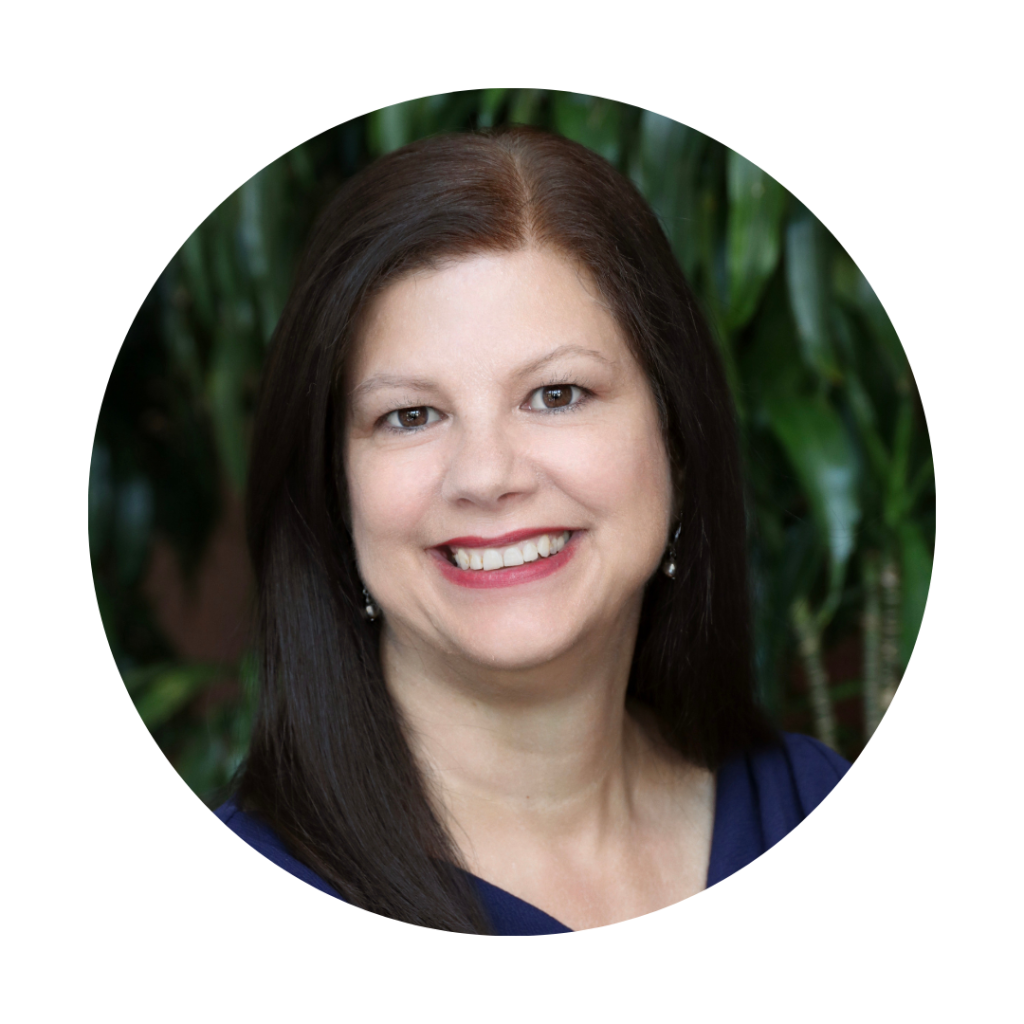
What Are We Going to Do About It?
At the time, Black community members in Central Florida made up only 11% of all boards, based on Central Florida Foundation’s 2019 Nonprofit Search report.
That very question led to a coffee date and a plan to bring people around the table to start a conversation. With support from the Foundation, Daniel led several discussions with executive directors, board members, and front-line employees. Also invited to the table were the Edyth Bush Institute, a local leader in nonprofit resources and education, and Peace and Justice Institute, another local award-winning institute that believes all voices matter, to join these early conversations. As a result, these community leaders and thinkers developed a theory of change for two groups: nonprofits and boards.
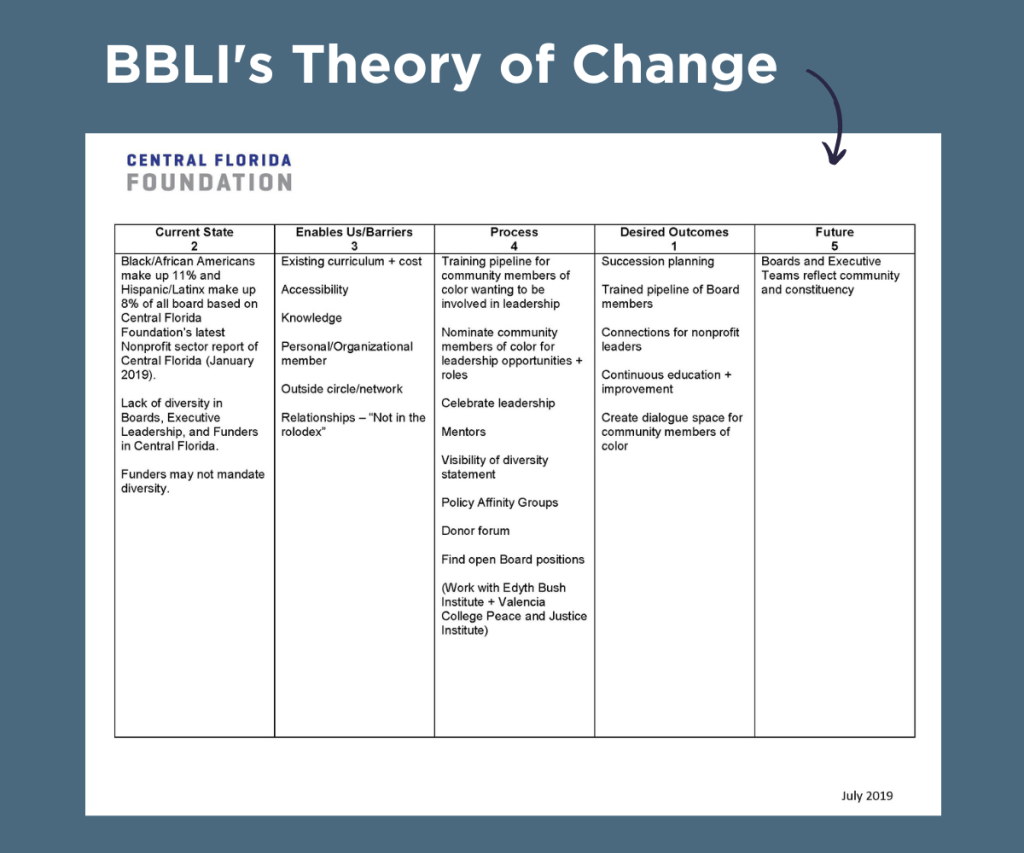
But then, 2020.
COVID hit in early 2020 and things got put on hold; however, after George Floyd, the Foundation, along with Daniel and other community leaders, felt the pressing nature of the mission and realized they didn’t have to wait until the pandemic was over – there was the appropriate technology to continue.
In front of computer screens, Daniel, Sandi and others now involved in what would become BBLI invited several people of color to start to work on the “what’s next” piece of the puzzle. From there, organizers did focus groups, one-on-one conversations, and gathered information to put together a potential business plan.
A Lot Was Learned.
According to the results of countless conversations and listening sessions, the group learned a lot.
The things learned along the way:
- Black people do not need leadership training.
- The BIPOC community members who serve on boards generally serve on multiple boards and are oftentimes the only person of color. (One guy served on 27 boards!)
- Many people felt tokenized and unheard.
- Nonprofits do not know where or how to recruit people of color (not all nonprofits, but enough).
Without collaboration across sectors and actually asking the uncomfortable questions, these truths, which ended up shaping the goals of BBLI, would have never emerged.
What needed to be done:
- There needed to be a program that would teach boards how to recruit people of color and how put those new recruits on a leadership track, as well as make sure they are heard and valued. This would eventually be called the Nonprofit Track.
- There also needed to be a program for up-and-coming Black leaders to learn about nonprofit board leadership and find opportunities to connect with nonprofits. This would eventually be called the Leadership Track.
Finding BBLI’s Home
With clear goals in mind, this new concept needed a home. The Orlando Economic Partnership (OEP) had asked their members to sign a diversity pledge and had a great success record with Leadership Orlando. After much discussion, the advisory council approached OEP which agreed to take BBLI on as a pilot. One of Central Florida Foundation’s Fundholders made a $250,000 anonymous grant to the Foundation for Orlando’s Future to get it started.
The OEP put a request for proposals to identify someone to work on the curriculum and lead classes. They ultimately hired Deloria Nelson-Streete, President of Authentic Culture & Engagement Solutions, Inc. to lead this project.
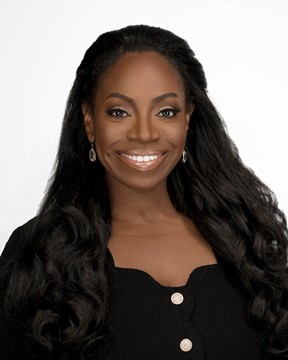
And, finally, the name of the Black Boardroom Leadership Institute was agreed upon. A recent article by Florida Trend, Mia Poinsette, a recent graduate and 100 Women Strong member, stated, “I think it’s very bold to deliberately insert the word ‘Black’ into the program title. It’s so intentional, but it’s liberating. And it really just prompts conversation. It really just holds our community accountable for change.”
The Launch
Finally, in January 2022, 3 years after that Facebook post that started it all, BBLI’s launch was announced.
BBLI started with 20 nonprofit organizations in the Nonprofit Track while, in June, the first Leadership Track was up and running with 20 emerging leaders that were selected from a pool of 139 applicants.
That spring, Daniel J. Downer, the person whose Facebook post started it all, took to social media again to reflect on the momentous occasion.
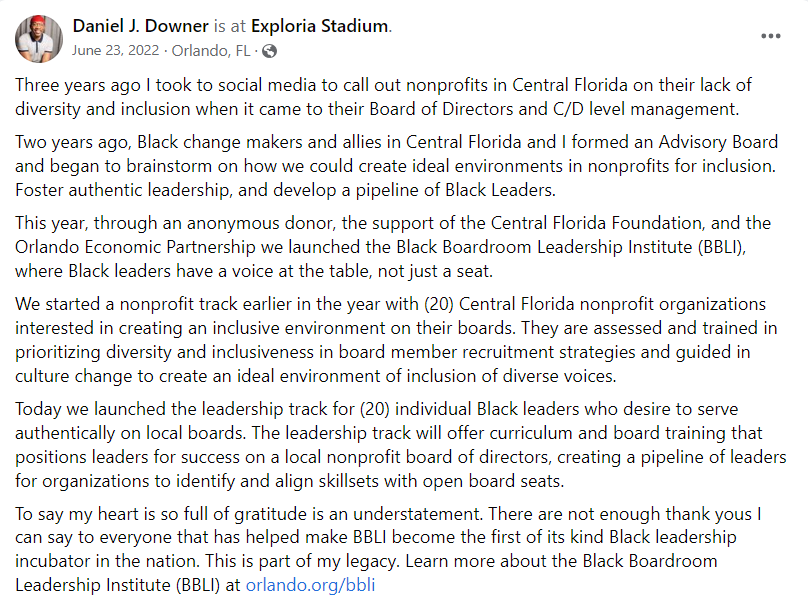
In December 2022, 20 leaders graduated the leadership track.
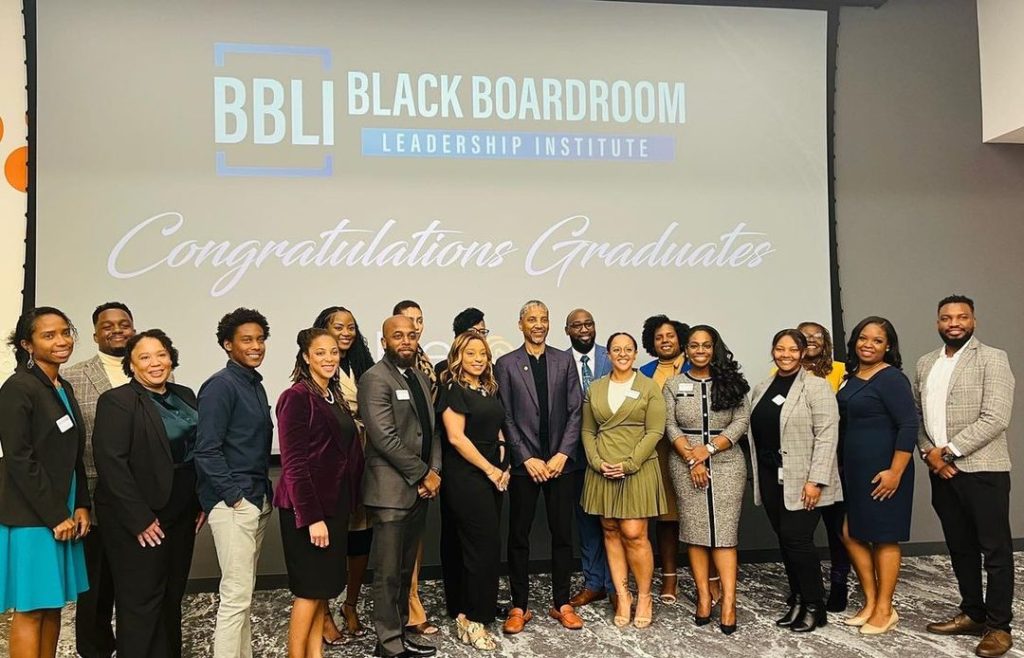
BBLI’s Future
With tremendous feedback and another leadership and nonprofit track underway, BBLI’s future looks bright – and that means Central Florida nonprofit leadership community looks brighter too.
Daniel J. Downer and Sandi Vidal both serve on the BBLI advisory council, alongside 10 other outstanding community leaders.
“This life-changing experience taught me things about myself that I will be able to use in my community,” said Curtis L. Proctor, Director of Development for Barry University, and recent BBLI nonprofit track graduate. “If given the opportunity, I recommend that everyone experience a space where they can be themselves and grow authentically,” Proctor added.
So, what did we do about it?
Thinking back to 2019, Daniel’s call to action on social media, and Sandi’s acknowledgement and challenge back, what exactly was the answer to “What are we going to do about it?”
Now we know.
We, as a community, are going to collaborate. We are going to listen. We are going to have the hard conversations. We are going to consider things deeply. And we’re going to move forward – together.
Progress doesn’t happen by mistake. And, to get it started, sometimes an honest Facebook post is all you need.
To learn more about BBLI, check out its website or OEP on social media.
